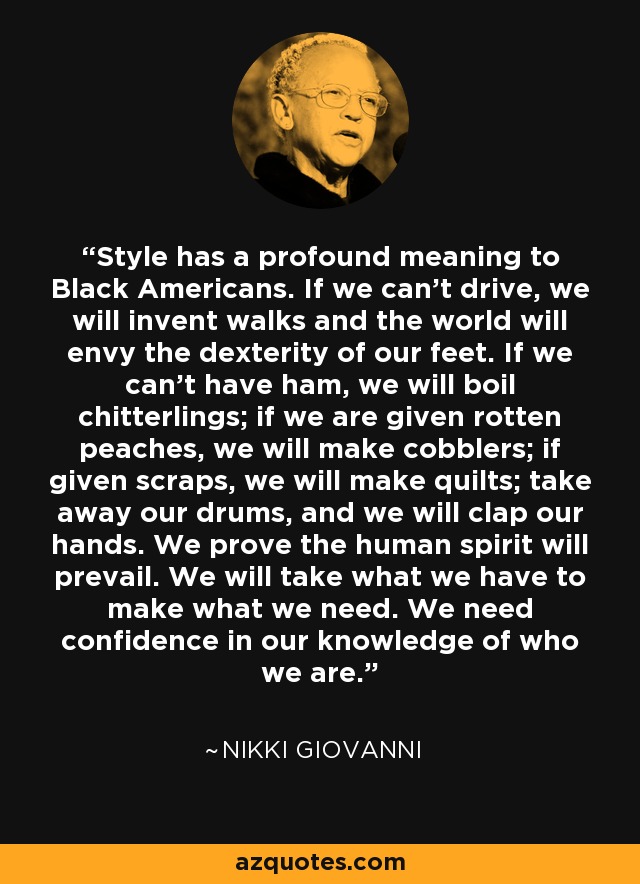Black no Bohemian
I am always wary about ascribing certain affixes to blackness in order to attribute a trait to a nonblack source. For example, the Black Marilyn Monroe to mean Dorothy Dandridge or the Black Meryl Streep to mean Viola Davis. I recall a professor proclaiming Beyonce to be a modern Madonna. The audacity! The profanity! To me it reads just as shady as “you’re so beautiful for a black girl”. In the minds of many (incompetent)people, black will forever be stained with inferiority. Therefore, ideals and positive concepts such as beauty, talent or success is counter to what blackness represents. Blackness can’t stand alone, in itself and embody goodness. Viola Davis can’t just be her talented, groundbreaking Viola Davis self because that’s just incomprehensible in our society. She’s sooo (unbelievably) good that she is in the image of another great(er) talent.
I say all this to say, I would have never deemed Shange or any other black artist of her era as “bohemian” because bohemian is a term which I’ve always seen associated with whiteness. Black people, to me, are artists. We are innately artistic. When whites get into the arts and spirituality and wearing their hair down and “being free”, it’s considered counterculture because it’s counter to their culture. How I’ve always perceived it, black folks been spiritual and immersed in the arts and it was never a conscious decision to be deliberately transgressive. Black folks live and breathe creativity and our casual expressions are works of art. So no I don’t see Shange as bohemian if bohemian means relating to some movement. In the same way I detest the redundancy of “black hippie”. Isn’t it laughable that a black slang (hip) is appropriated by whites and then thrown onto black people to say this black is like us. Shange being free-spirited, being a traveller, being spiritual and magical and a poet-cook-mother-activist is in line with an authentic blackness that doesn’t need to be supplemented by bohemian.
I want to share this quote by another Black Arts Movement poet that I think sums up how I feel:

Likewise, I wouldn’t read the sisters in Sassafrass, Cypress and Indigo as bohemian but simply as black girls/women doing what is essentially black: creating. More specifically is the link between creation and survival that enables life for black women.
I remember wanting so badly to read Sassafrass, Cypress and Indigo after seeing so many quotes about the magic of women with moons falling from mouths and roses from legs. But I remember being so disappointed in the cliche of living within a toxic love, where a man in his art is more important than a woman and she feels obliged to sacrifice because the man is so irresistibly talented. I am frustrated with this narrative because I am tired of black women characters’ storyline being incomplete without some man to inconvenience her greatness.


Comment ( 1 )